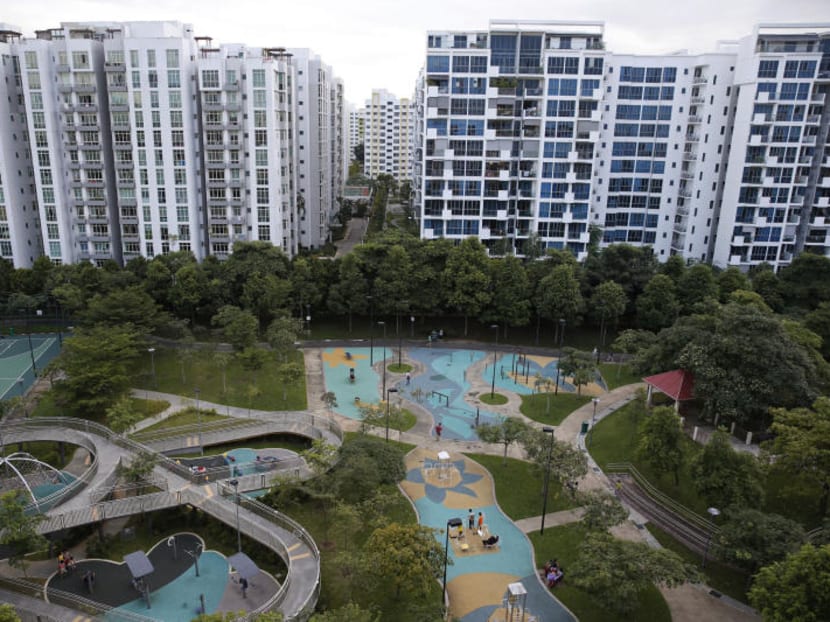Too early to lift property cooling measures: MAS
SINGAPORE — The Republic’s property cooling measures still has some way to go before the Government can consider any adjustments, managing director for the Monetary Authority of Singapore (MAS) Ravi Menon said on Monday (July 25).

A view of blocks of private residential condominiums, left, and executive condominiums in Singapore, Jan 4, 2016. Photo: Reuters
SINGAPORE — The Republic’s property cooling measures still has some way to go before the Government can consider any adjustments, managing director for the Monetary Authority of Singapore (MAS) Ravi Menon said on Monday (July 25).
“It’s too early to lift the property cooling measures because we want to make sure that the gains we have made painstakingly over the last one to two years are entrenched, that we are on a sustainable path for the property market, that household balance sheets become stronger still to withstand shocks,” Mr Menon said at the bank’s annual report briefing.
The property market has been stabilising over the last two years, with prices moderating from their peak in the third quarter of 2013, he said, but he highlighted that property prices had gone up by 60 per cent between 2009 and 2013 when nominal incomes had increased by only 30 per cent during the same period.
“The risk of a renewed surge in property prices is not trivial given that interest rates are likely to remain low and global investors continue to search for yield. And while the growth in household debt has eased considerably, it will take time for household balance sheets to strengthen and become more resilient to interest rate and income shocks,” Mr Menon said.
Ms Christine Li, director of research at Cushman & Wakefield, said: “While the demand for housing has been curbed quite significantly, liquidity in the market is still excessive, which prompts investors to buy physical assets to combat inflation or for wealth preservation in a persistent low interest rate environment.”
Not surprised by the MAS’ comment, Mr Nicholas Mak, head of research and consultancy at SLP International, drew attention to how the housing market could potentially be over regulated.
“For those who wish to invest in private property, the Government should manage them with a lighter touch. If you were to bring down property prices to the same level as nominal incomes, what happens then? It becomes a very managed property market,” he said.
Private home prices in the Republic fell for an 11th consecutive quarter in the second quarter but the cumulative decline since the peak in 2013 is 9.4 per cent compared to the over 60 per cent rise after the global financial crisis in 2009.
The MAS, Ministry of Finance and Ministry of National Development will continue to keep a close watch over developments in the property market, Mr Menon said.






